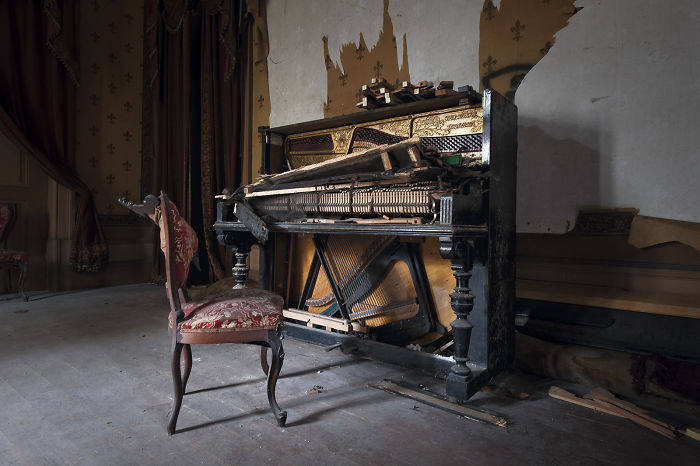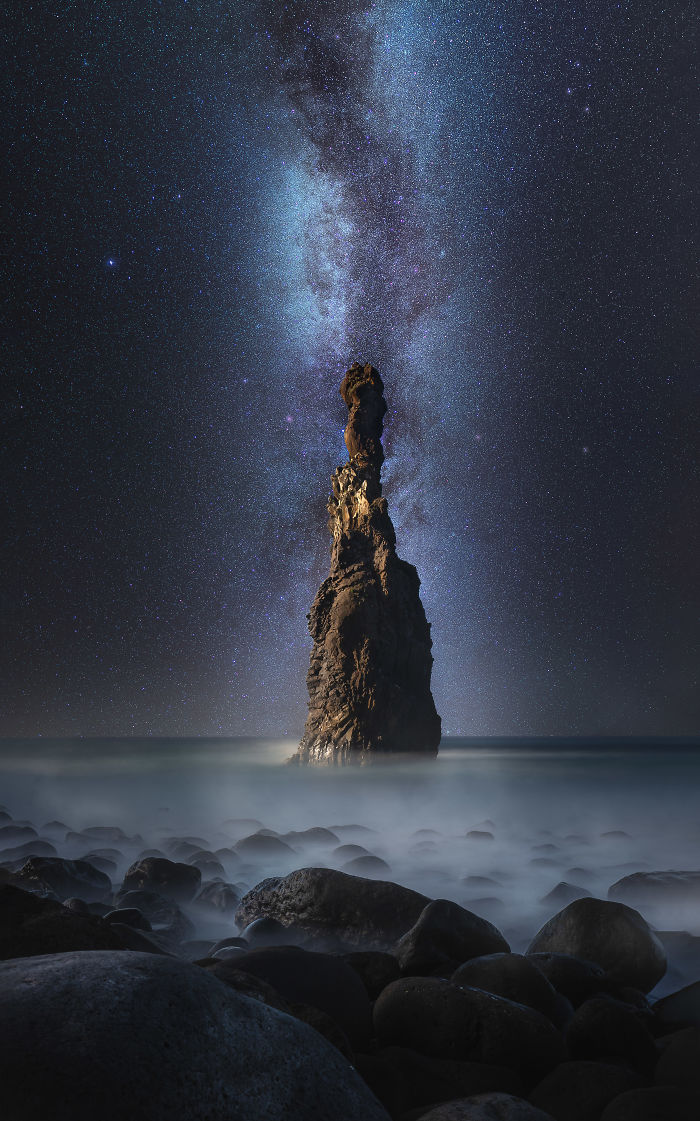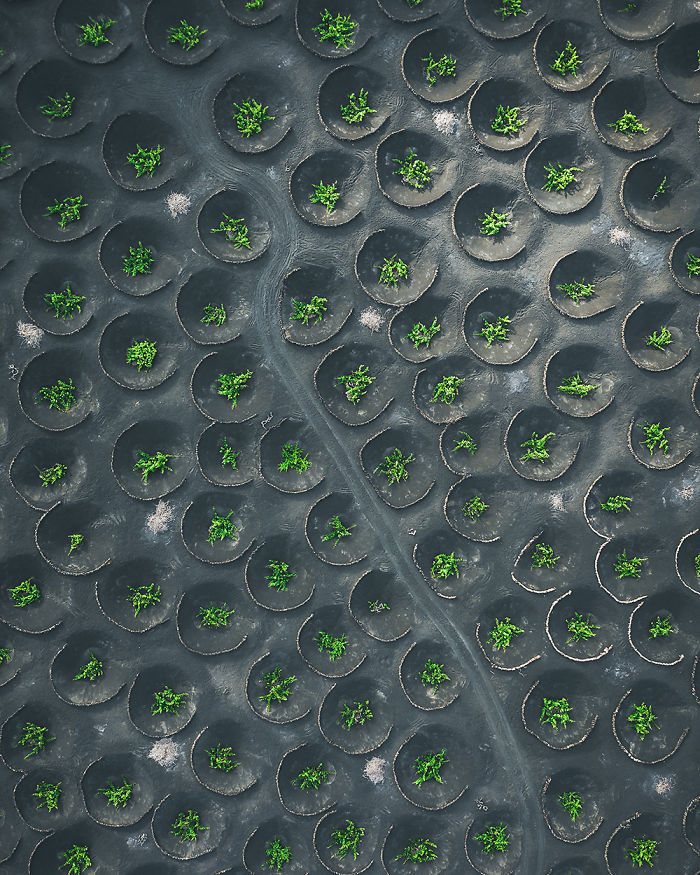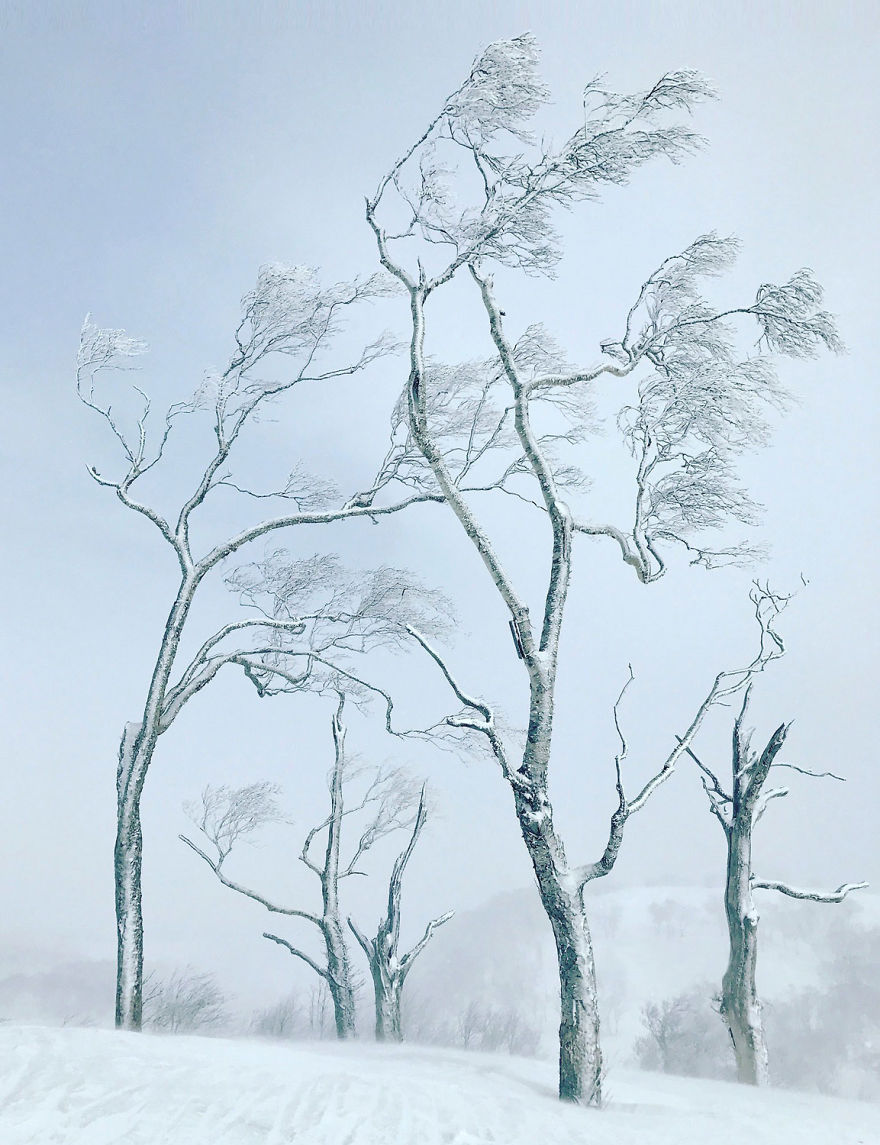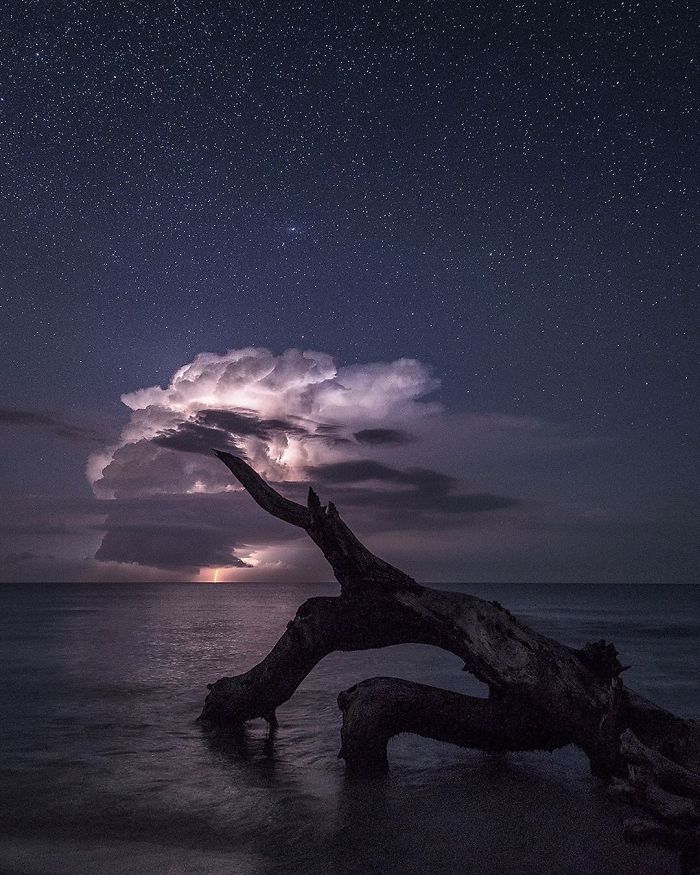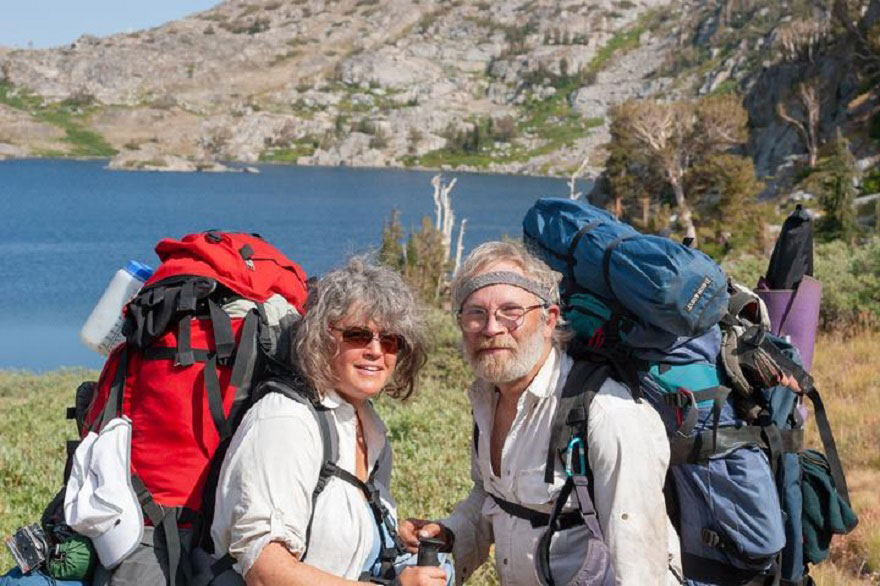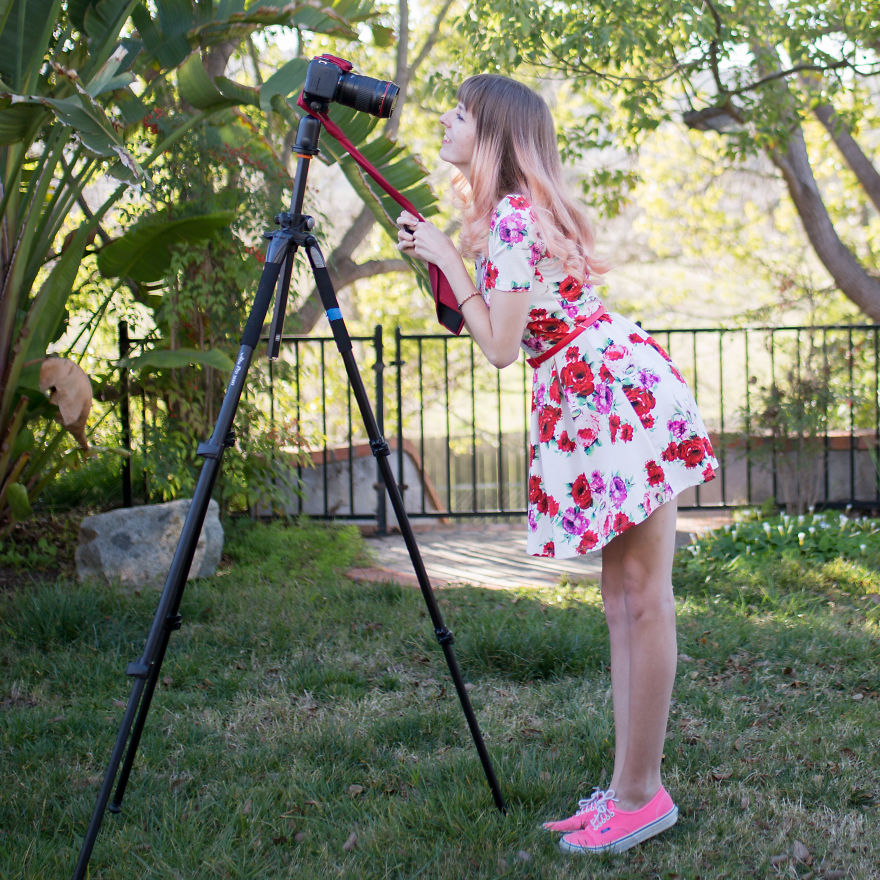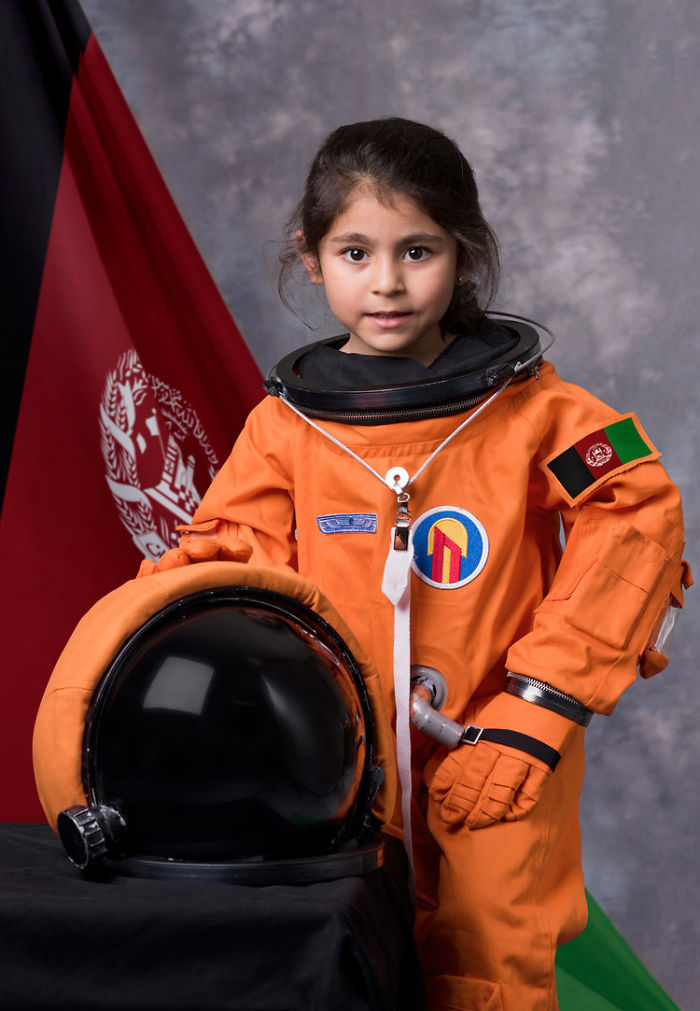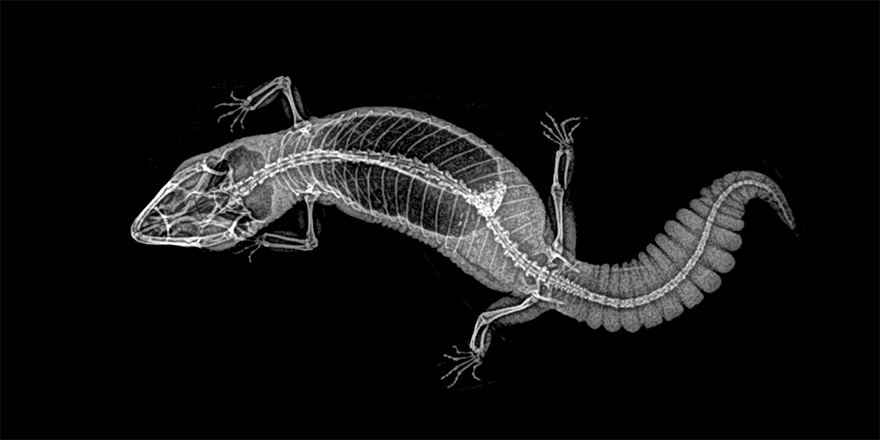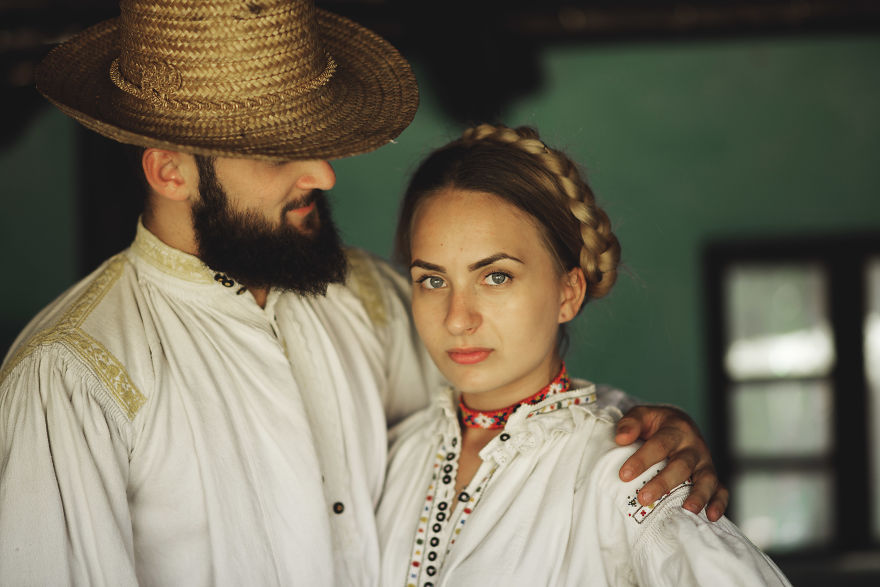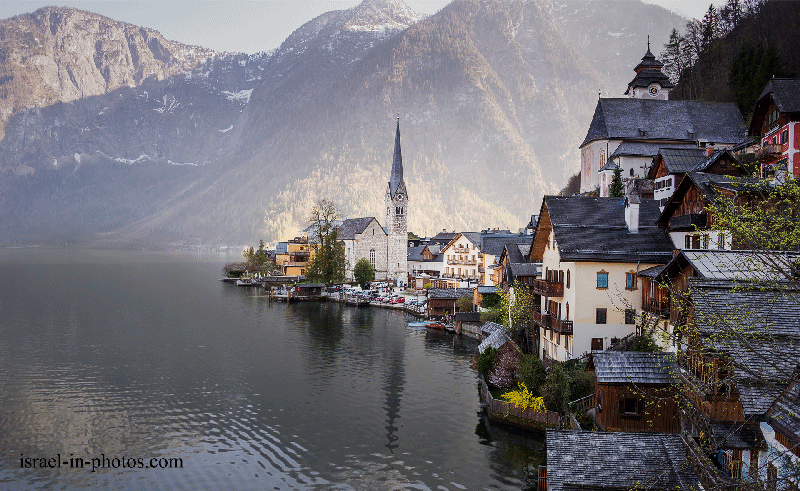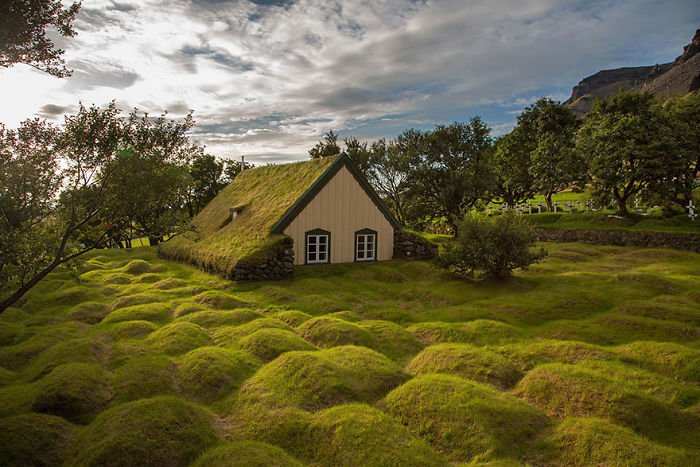2021 World Press Photo Contest winners Today, category winners of the 2021 World Press Photo of the Year competition were announced. 45 photographers from 28 countries were selected by an independent jury including representatives from National Geographic and Reuters.
World Press Photo seeks to highlight the best visual journalism from the following categories: Contemporary Issues, Environment, General News, Long-Term Projects, Nature, Portraits, Sports and Spot News.
'For the past 66 years, we have been supporting, celebrating and putting the spotlight on the important stories and those who make them. . . We’re looking forward to sharing these stories with our community of over four million people in our Exhibition 2021, the yearbook, and on our online channels. It is by seeing one story that we can start to feel another person’s reality. That is what the power of visual storytelling means to us,' said Joumana El Zein Khoury, executive director of the World Press Photo Foundation.
You can browse the entire library of prize-winning images on the World Press Photo contest page.
CONTEMPORARY ISSUES - FIRST PRIZE, SINGLES: 'Yemen: Hunger, Another War Wound' by Pablo Tosco (Argentina)
Caption: Fatima and her son prepare a fishing net on a boat in Khor Omeira bay, Yemen, on 12 February.
Story: Fatima has nine children. In order to provide for them, she makes a living off fishing. Although her village was devastated by armed conflict in Yemen, Fatima returned to resume her livelihood, buying a boat with money she earned from selling fish. The conflict—between Houthi Shia Muslim rebels and a Sunni Arab coalition led by Saudi Arabia—dates from 2014, and has led to what UNICEF has termed the world’s largest humanitarian crisis.
Some 20. 1 million people (almost two-thirds of the population) required food assistance at the beginning of 2020, with approximately 80 percent of the population relying on humanitarian aid. A Saudi coalition blockade on Yemen between 2015 and 2017 imposed import restrictions on food, medicines, and fuel. Resulting shortages exacerbated the humanitarian crisis.
In many cases, conditions of near-famine were caused not so much by the unavailability of food, but because it became unaffordable, priced out of reach to most Yemenis by import restrictions, soaring transport costs due to fuel scarcity, a collapsing currency, and other man-made supply disruptions. In 2020 conflict intensified, and the situation was made worse by unprecedented heavy rainfall, which made some 300,000 people homeless, locust infestations that destroyed crops, and the effects of the COVID-19 pandemic.
CONTEMPORARY ISSUES - FIRST PRIZE, STORIES: 'Sakkawood' by Alexey Vasilyev, Russia
Caption: Twins Semyon and Stepan perform in the roles of dulgancha, mythical swamp creatures, in The Old Beyberikeen With Five Cows, in Sakha, Russian Federation, on 9 August 2019. It is their first part in a film.
Story: The people of Sakha, a republic in the far northeast of the Russian Federation, live in a remote area with extreme weather conditions: temperatures can drop as low as -50°C in winter. Although Sakha, which is also known as Yakutia, extends over more than three million square kilometers, its population numbers barely 950,000 people, around 50 percent of which are ethnic Sakha (or Yakuts).
Art has become a way of showcasing and preserving Sakha culture, traditions, and stories. Cinema has flourished there since the 1990s. Around seven to ten feature films are shot a year, by a local movie industry lightheartedly dubbed ‘Sakhawood’. Genres range from romantic comedies and crime movies to fairy tales and local legends. Most movies are made in the Yakut language, and subtitled in Russian.
Production budgets range from US$12,000 to US$120,000. Many actors have no professional training, although some have worked in theater, and directors and camera crew frequently attend film school in Moscow or elsewhere. The films are enormously popular locally but have also met wider success.
In recent years, Sakha cinema has been represented in film festivals in Finland and South Korea, among others, and the films have picked up numerous awards.
CONTEMPORARY ISSUES - SECOND PRIZE, STORIES: 'Islamic State’s Yazidi Survivors' by Maya Alleruzzo, United States, Associated Press
Caption: Photographs of Yazidis slain in 2014 by Islamic State militants are found in a small room at the Lalish Temple, above the town of Shekhan, in northern Iraq, on 12 September 2019. According to CIJA investigators, when Yazidis were seized, IS registered them, photographed the women and children, categorized women into ‘married’, ‘unmarried’, and ‘girls’, and decided where they would be sent. Initially, the thousands of captured women and children were handed out as gifts to fighters who took part in the Sinjar offensive, in line with IS’s policy on the spoils of war.
Story: In August 2014, the group known as Islamic State (IS) launched an attack on the heartland of the Yazidi community at the foot of Sinjar Mountain, in northern Iraq. IS sees Yazidis as heretics and therefore a valid target for extermination, in their vision of a new caliphate ruled by Sharia law.
From 2014 until US and Iraqi forces began liberating the region in 2017, a slavery economy operated in IS-held territory. In recent years, reports have emerged across the media of women and children handed out as gifts and sold as slaves, for a stipend of around US$50 per slave and US $35 per child. In May 2020, Associated Press reported that although some 3,500 slaves had been freed, most ransomed by their families, some 2,900 Yazidis remained unaccounted for.
The United Nations has called the attacks an act of genocide against the minority group. The independent Commission for International Justice and Accountability (CIJA), which has been investigating IS in Iraq since 2015, has now built up a substantial body of evidence and first-hand witness accounts in order to construct case files that identify ranking IS members as responsible for atrocities, including genocide and other crimes against humanity.
ENVIRONMENT - FIRST PRIZE, SINGLES: 'California Sea Lion Plays with Mask' by Ralph Pace, United States
Caption: A curious California sea lion swims towards a face mask at the Breakwater dive site in Monterey, California, USA, on 19 November.
Story: California sea lions (Zalophus californianus) are playful animals, native to western North America. With COVID-19 lockdowns in place across California, outdoor and natural beauty spots with plenty of wildlife became a popular focus for local travel. In many countries the wearing of face masks outdoors was obligatory.
Similar destinations around the world became littered with abandoned masks. The BBC reported an estimated 129 billion disposable face masks and 65 billion throwaway gloves being used each month through the pandemic. Such personal protective equipment (PPE) can be mistaken for food by birds, fish, marine mammals, and other animals. PPE also contains plastic, and so contributes to the eight million tons of plastic that end up in the oceans every year.
According to World Animal Protection, every year an estimated 136,000 seals, sea lions, and whales die from plastic entanglement. Surgical masks break down into millions of microplastic particles over time, which are eaten by fish and other animals, and therefore carry contamination back up the food chain, potentially also affecting humans.
ENVIRONMENT - FIRST PRIZE, STORIES: 'Pantanal Ablaze' by Lalo de Almeida, Brazil, Panos Pictures, for Folha de S
Caption: Firefighters combat a fire outbreak at the S
Story: Nearly a third of Brazil’s Pantanal region—the world’s largest tropical wetland and flooded grasslands, sprawling across some 140,000 to 160,000 square kilometers—was consumed by fires over the course of 2020. According to Brazil's National Institute for Space Research, there were triple the amount of fires in 2020 compared to 2019. Fires in the Pantanal tend to burn just below the surface, fueled by highly combustible peat, which means they burn for longer and are harder to extinguish.
The Pantanal, which is recognized by UNESCO as a World Biosphere Reserve and is one of Brazil’s most important biomes, is suffering its worst drought in nearly 50 years, causing fires to spread out of control. Many of the fires started from slash-and-burn farming, which has become more prevalent due to the weakening of conservation regulation and enforcement under President Jair Bolsonaro’s administration.
The Brazilian Institute of the Environment and Renewable Natural Resources (IBAMA) has seen its funding reduced by around 30 percent. Bolsonaro has frequently spoken out against environmental protection measures, and has made repeated comments undermining Brazilian courts’ attempts to punish offenders. Environmentalists say that this is encouraging agricultural burning and creating a climate of impunity.
Luciana Leite, who studies humanity’s relationship with nature at the Federal University of Bahia, predicts the total collapse of the Pantanal, if current climate trends and anti-environmental policies persist.
GENERAL NEWS - FIRST PRIZE, SINGLES: 'The First Embrace' Mads Nissen, Denmark, Politiken/Panos Pictures
Caption: Rosa Luzia Lunardi (85) is embraced by nurse Adriana Silva da Costa Souza, at Viva Bem care home, S
Story: This was the first hug Rosa had received in five months. In March, care homes across the country had closed their doors to all visitors as a result of the COVID-19 pandemic, preventing millions of Brazilians from visiting their elderly relatives. Carers were ordered to keep physical contact with the vulnerable to an absolute minimum. At Viva Bem, a simple invention, ‘The Hug Curtain', allowed people to hug each other once again.
The new coronavirus had first appeared in Wuhan, China, at the end of 2019, and by January 2020 had begun to spread around the world. On 11 March, the World Health Organisation declared the COVID-19 outbreak a pandemic. The disease—transmitted mainly via close contact, respiratory droplets, and aerosols—could be fatal, and people over the age of 70 were one of the groups considered most vulnerable to the disease.
Brazilian president, Jair Bolsonaro, dismissed claims about the severity of the pandemic and the danger posed by the virus, undermined quarantine measures adopted at state level, and encouraged Brazilians to continue working to keep the economy afloat. Brazil ended 2020 with one of the worst records globally in dealing with the virus, with some 7. 7 million reported cases and 195,000 deaths.
GENERAL NEWS - FIRST PRIZE, STORIES: 'Paradise Lost' by Valery Melnikov, Russia, Sputnik
Caption: A rocket remaining after the shelling of the city of Martuni (Khojavend), Nagorno-Karabakh, lies in a field, on 10 November 2020, the day the peace agreement between Armenia and Azerbaijan came into effect.
Story: Conflict between Azerbaijan and Armenia over the disputed region of Nagorno-Karabakh resumed in September, after a lull of 30 years. When the Soviet Union was crumbling at the end of the 1980s, ethnic Armenians in Nagorno-Karabakh, part of Azerbaijan, took advantage of the power vacuum and voted to join Armenia.
Fighting intensified after the Soviet Union finally dissolved in 1991, and continued until a ceasefire in 1994. More than 20,000 people died and a million people, both Armenian and Azerbaijani, had to leave their homes. Victorious Armenians declared an independent state. In the intervening 30 years, little has been done to resolve the status of Nagorno-Karabakh and there have been periodic military clashes between the two sides.
A July 2020 border clash triggered massive protests in Azerbaijan’s capital, Baku, with thousands of demonstrators calling for the country to go to war with Armenia. Renewed hostilities, which each side blames the other for starting, began on 27 September in what became known as the Second Nagorno-Karabakh War. Conflict continued until 9 November, the worst fighting the area had seen since the 1990s.
In a settlement brokered by Russia, Azerbaijan regained possession of territory lost in the 1990s, but the regional capital, Stepanakert, was left under Armenian control. Although fighting is over, reconciliation will prove difficult both to Armenians who feel they have lost their homeland and are now displaced, and to Azerbaijanis returning to a region ravaged by war.
LONG-TERM PROJECTS - FIRST PRIZE: 'Habibi' by Antonio Faccilongo, Italy, Getty Reportage
Caption: Lydia Rimawi lies on her sofa in Beit Rima, near Ramallah, Palestine, on 20 December 2018. Her husband Abdul Karim Rimawi was arrested in 2001 and sentenced to 25 years in prison for involvement in the assassination of Israeli tourism minister Rehavam Ze’evi. The couple have a son, Majd, who was born as a result of IVF in 2013. In 2014, Abdul Karim was fined around US $1,500 for smuggling his semen from prison, and deprived of family visits for two months.
Story: Nearly 4,200 Palestinian security detainees are being held in Israeli prisons, according to a February 2021 report by human rights organization B’Tselem. Some face sentences of 20 years or more. To visit a Palestinian prisoner in an Israeli jail, visitors have to overcome a number of different limitations resulting from border laws, prison regulations, and restrictions set by the Israel Security Agency (ISA).
Visitors are usually allowed to see prisoners only through a transparent partition, and talk to them via a telephone receiver. Conjugal visits are denied and physical contact is forbidden, except for children under the age of ten, who are allowed ten minutes at the end of each visit to embrace their fathers.
Since the early 2000s, long-term Palestinian detainees hoping to raise families have been smuggling semen out of prison, hidden in gifts to their children. Semen is secreted in a variety of ways, such as in pen tubes, plastic candy wrappers, and inside bars of chocolate. In February 2021, Middle East Monitor reported that the 96th Palestinian baby had been born using sperm smuggled from Israeli prison.
Habibi, which means ‘my love’ in Arabic, chronicles love stories set against the backdrop of one of the longest and most complicated conflicts in modern history. The photographer aims to show the impact of the conflict on Palestinian families, and the difficulties they face in preserving their reproductive rights and human dignity. The photographer chooses not to focus on war, military action, and weapons, but on people’s refusal to surrender to imprisonment, and on their courage and perseverance to survive in a conflict zone.
NATURE - FIRST PRIZE, SINGLES: 'Rescue of Giraffes from Flooding Island' by Ami Vitale, United States, for CNN
Caption: A Rothschild’s giraffe (Giraffa camelopardalis rothschildi) is transported to safety in a custom-built barge from a flooded Longicharo Island, Lake Baringo, in western Kenya, on 3 December 2020.
Story: Rothschild’s giraffes are a subspecies of the northern giraffe, and are classified as endangered. The giraffe is the world’s tallest land mammal and the Rothschild’s giraffe is one of the loftiest subspecies, growing up to six meters in height. Longicharo Island was once a peninsula.
Rising water levels in Lake Baringo over the past ten years have cut the peninsula off to form an island. Particularly heavy rainfall in 2019 caused further floods, stranding nine giraffes. The local community worked with conservationists from the Kenya Wildlife Service, the Northern Rangelands Trust, and Save Giraffes Now, to build the barge and transport the marooned animals to a sanctuary in the Ruko conservancy on the shores of the lake.
The rains had also led to an abundance of food on the island, so edible treats could not be used to entice the giraffes onto the barge. Instead, the giraffes had to be tranquilized, which is a dangerous procedure given their anatomy, as they are at risk of choking on their own saliva, and changes in blood pressure can cause brain damage. A vet was on hand to immediately counteract the drug; the animals were then hooded and led onto the barge with guide ropes.
PORTRAITS - SECOND PRIZE, STORIES: 'Nowhere Near' by Alisa Martynova, Russia
Caption: Blessing came to Italy from Nigeria, and works in Livorno, Italy, as a childminder. She is married and has a child of her own. 9 March 2020.
Story: More than one million immigrants from Africa officially reside in Italy, as well as an unknown number of undocumented migrants, many of whom have made a perilous and often life-threatening journey to get there. The photographer compares migrants in Italy to scattered stars, a constellation of young people from different countries, of different genders, and with different traits.
They have all come to Italy for different personal reasons and are celebrated for their individual stories, in a way that tries to resist stereotyping of African migrants. A 2016 study by the International Organization of Migrants pointed to insecurity, conflict, and discrimination as the main drivers of migration, not solely economic and work reasons. Discrimination on the basis of social group, religion, or sexual orientation was mentioned by almost half of the study group.
In October 2020, the Italian government adopted a decree overturning many of the anti-immigration policies introduced by the previous interior minister Matteo Salvini, leader of the right-wing Lega Nord (Northern League).
SPORTS - FIRST PRIZE, SINGLES: 'Log Pile Bouldering' by Adam Pretty, Australia, Getty Images
Caption: Georg climbs a log pile while training for bouldering, in Kochel am See, Bavaria, Germany, on 15 September.
Story: Bouldering entails climbing on small rock formations and boulders of usually no more than six meters in height, without ropes or harnesses. Historically, it began as a training activity for more ambitious climbing and mountaineering pursuits, but has evolved into a sport in its own right. Rock-climbing gyms and sports facilities in Munich were closed as a result of the ongoing COVID-19 pandemic, so athletes had become creative in their training methods.
SPOT NEWS - THIRD PRIZE, SINGLES: Forest Fire by Nuno Andr, Portugal, Ag
Caption: A child sits inside a car close by a forest fire in Oliveira de Frades, Portugal, on 7 September 2020.
Story: A wildfire began in Oliveira de Frades, about 100 kilometers from Porto in eastern Portugal, on 7 September, and spread some 30 kilometers west, to Sever do Vouga, and 40 kilometers southwest, to
The uncontrolled spread of eucalyptus trees—which supply raw material for an economically important pulp industry, but which are extremely flammable—are a major factor in the rapid spread of wildfires. Portugal has a wildfire season lasting from June to September. Its hot climate, consistent warm winds coming off the Atlantic, and a well-forested landscape make it particularly susceptible to fire.
Extreme temperatures and severe drought contributed to the 2020 fire season. A 2020 report released jointly by the Portuguese Association of Nature and the World Wide Fund for Nature states that Portugal is the European country worst affected by wildfires: more than three percent of its forest burns every year.
SPOT NEWS - SECOND PRIZE, STORIES: Presidential Vacancy by Ernesto Benavides, Peru, Agence France-Presse
Caption: A supporter of ousted president Martin Vizcarra waves a Peruvian flag on Avenida Abancay, in Lima, Peru, on 14 November 2020, in demonstrations that continued past the 11pm curfew imposed due to the COVID-19 pandemic.
Story: Peru saw its greatest political instability in 20 years in mid-November, with three presidents coming into power over the course of little more than a week, resulting in massive protests throughout the country. On 9 November, the Peruvian national congress impeached President Martin Vizcarra, condemning his handling of the COVID-19 crisis and alleging that he had taken bribes while serving as a regional governor—a claim he denied.
During his tenure, Vizcarra faced opposition from Congress, but amassed wide popularity, especially among Peruvian youth, as an anti-corruption crusader. Crowds began to gather at Plaza San Mart
Protests intensified, and on 12 November a National March occurred throughout Peru, demanding his resignation. On 14 November, thousands of people again took to the streets in a second National March, with many dressed in black. In Lima, two people were killed and more than 100 were injured in violent clashes with police. Manuel Merino resigned on 15 November, setting off celebrations in the streets. A new president, Francisco Sagasti, was inaugurated two days later.
. dpreview.com2021-4-15 18:43




